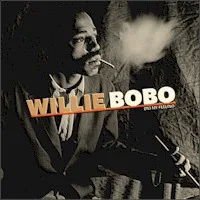Styles: Saxophone Jazz
Year: 2001
File: MP3@320K/s
Time: 73:00
Size: 171,6 MB
Art: Front
(5:02) 1. I Wished On The Moon
(4:24) 2. From This Moment On
(5:44) 3. It's A Pity To Say Goodnight
(6:17) 4. Just Friends
(7:03) 5. The Moon Of Mankoora
(6:53) 6. Speak Low
(5:27) 7. Goin' To Meetin'
(3:05) 8. People Will Say We're In Love
(5:00) 9. Night And Day
(3:41) 10. Pass The Hat
(3:48) 11. Yes, Yes
(3:59) 12. Please Send Me Someone To Love
(2:40) 13. Our Love Is Here To Stay
(5:35) 14. Oh Babee
(4:15) 15. Little Cougar
Year: 2001
File: MP3@320K/s
Time: 73:00
Size: 171,6 MB
Art: Front
(5:02) 1. I Wished On The Moon
(4:24) 2. From This Moment On
(5:44) 3. It's A Pity To Say Goodnight
(6:17) 4. Just Friends
(7:03) 5. The Moon Of Mankoora
(6:53) 6. Speak Low
(5:27) 7. Goin' To Meetin'
(3:05) 8. People Will Say We're In Love
(5:00) 9. Night And Day
(3:41) 10. Pass The Hat
(3:48) 11. Yes, Yes
(3:59) 12. Please Send Me Someone To Love
(2:40) 13. Our Love Is Here To Stay
(5:35) 14. Oh Babee
(4:15) 15. Little Cougar
The esthetic and visceral aspects of Eddie “Lockjaw” Davis’ music have been on my mind a lot lately. My regular AAJ column “Combing the Fantasy Catalog” allowed me the welcome chance to explore his Prestige label legacy at length, but much to my regret this recent reissue wasn’t in circulation until after I’d put the wrap on the articles. The generous clutch of material from three albums, Misty, Stompin’ and Goin’ to the Meetin’ gathered here is much in line with his other work circa this vintage. The disc’s first half revisits the classic Davis/Scott combo flying its full hard-swinging soul-hued regalia with the added bonus of conguero Ray Barretto in the ranks. Originally a Moodsville release the tunes are a surprising mix of up-tempo burners like “From This Moment On” and balladic fare such as “Just Friends.” Both vie to create a swirling batch of performances that bring out the band’s best side. Just drop in on the furious conga breaks on the former tune and tidal force of Scott’s sustain-saturated fills for a taste guaranteed to leave even the most sullenly jaded listener rapacious for more. Even the slice of pop exotica “The Moon of Manakoora,” a regular staple of the Bachelor pad orchestras bandleaders like Les Baxter and is successfully given a make-over in line with the Davis’ no-frills delivery.
The album from which the disc’s title is taken fills out the second half trading Scott’s soul organ for Parlan’s hard bop piano and convening a completely different rhythm section with conga presence intact. Catlett’s moody walking line on the title track (which strangely recalls the bass line to Gil Melle’s “Mars”- how’s that for an obscure reference?) is but one of the many indications of a different, but no less visceral vibe. Bobo’s skins are sparser and more staccato in sound, accenting rather than driving the group, and Taylor’s sticks deliver a crisper, more measured sound than Edgehill. Parlan steps to the solo podium almost as often as the leader, but tune lengths are significantly shorter. Highlights are numerous, but the Latin groove of “Night and Day” where Taylor and Bobo sculpt a living lattice of interlocking cross rhythms beneath Davis’ booting phrasings garners first prize by my estimation. Listener’s familiar with Davis won’t need much prodding when it comes to acquisition of this disc, but suffice it to say that those unfamiliar with his gruff charms are likely to find themselves pleased by the purchase as well.By Derek Taylor
https://www.allaboutjazz.com/goin-to-the-meetin-eddie-lockjaw-davis-review-by-derek-taylor.php
Personnel: Eddie "Lockjaw" Davis (tenor saxophone); Horace Parlan (piano); Shirley Scott (organ); George Duvivier (bass); Ray Barretto, Willie Bobo (congas).
Goin' To The Meetin'

















